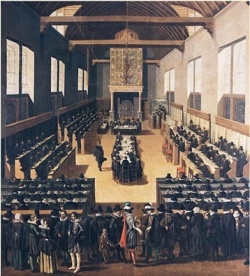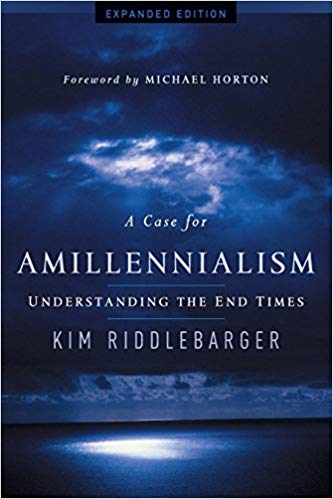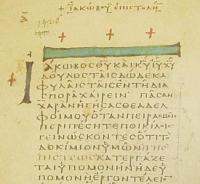 Synod condemns the errors of those . . .
Synod condemns the errors of those . . .
II Who teach that the purpose of Christ's death was not to establish in actual fact a new covenant of grace by his blood, but only to acquire for the Father the mere right to enter once more into a covenant with men, whether of grace or of works.
For this conflicts with Scripture, which teaches that Christ has become the guarantee and mediator of a better--that is, a new-covenant (Heb. 7:22; 9:15), and that a will is in force only when someone has died (Heb. 9:17).
_______________________________
The Canons now turn to some of the more technical and specific errors of the Dutch Arminians. The first of these errors is the Arminian notion that the death of Christ did not actually establish a covenant of grace between God and his elect, but that the atonement merely makes a provision for God into enter into a covenant with his creatures on the ground of God's choosing—whether that be faith or works.
This is fallout from the Arminian view of the atonement, which is really a species of what is known as the governmental theory of the atonement, in which the death of Christ supposedly demonstrates God’s love, along with his right to order his universe as he sees fit. In this scheme, the cross of Christ is not seen as a satisfaction of God’s justice, and therefore, a necessary act if sinners are to be saved. Instead, the cross is instead understood in terms of God’s arbitrary decree that a sacrificial death would be accepted as a payment for sin.
This means that it was not necessary for Christ to die if God’s elect were to be saved, but that God determined to do things in this way, since his rule over the universe, and his love for sinners would be most clearly manifest. In other words, God as the moral governor of his universe, saw fit to save in this way. But he was under absolutely no necessity of doing so.
Let us be careful to not lose sight of the forest through the trees. The essence of the Arminian view of the cross is that the death of Christ is not a satisfaction of God’s justice in punishing sin—the Arminians believe this would make God a cruel God who must exact his pound of flesh. The cross is a demonstration of God’s love for a lost and fallen world, as well as a display of his wisdom and justice. God did not have to save sinners in this way, but he did determine that if he were to save, this would be the best way to do it.
This view stands in sharp contrast to the Reformed view, in which it is argued that God did not have to save any, but in his grace he determined to save some, and once he did so, the cross was the only possible way for any to be saved because God’s holy justice must be satisfied. While no Reformed Christ would want to argue that the death of Christ was anything less than a picture of God’s love for a lost and fallen world, the cross is certainly that and more. For the cross is also a glorious demonstration of God’s justice in punishing Christ for the sins of the elect. In the cross both the love and justice of God is openly displayed for all to see. We need not, as the Arminian does, sacrifice God’s justice to supposedly magnify God’s love.
For the Arminian, the cross of Christ is not at all necessary. The death of our Lord is merely the best way among a number of possible choices for God to display his love and moral governorship over the world that he has made. Therefore, it was not necessary for Christ to die. Rather, it was an arbitrary choice on God’s part, and this means was chosen since it accomplished what God wanted to accomplish.
Let us be perfectly clear here. The Arminian notion of the death of Christ cannot at all be seen to magnify the love of God, since if there were any other way to save, and then God sent Christ to die in unspeakable anguish, God is not loving, but utterly cruel. In demonstrating the weakness of this position, one theologian uses the following analogy. It would make no sense at all for someone's parents to kill their siblings in their presence as a means of demonstrating how much they loved them, and to demonstrate how seriously they regarded their sin.
Basically, that is the Arminian view of the cross. Christ dies a horrific death to show God’s love and moral governorship, yet the cross does not actually accomplish anything or satisfy God’s wrath and anger toward sin. So, while the Arminian argues that the Reformed Christian believes in a cruel God who elects some and not others, a God who must exact a precise payment for sin, in reality it is the Arminian who has a cruel God. The Arminian God punishes his own son, needlessly, when there were other possible ways to do the same thing. As B. B. Warfield once reminded us, if the cross were not necessary to satisfy God’s justice, why did God not accept some other way, such as our repentance or our good works. God could have done so, and accomplished the same thing without Christ having to die? That these possible ways of salvation were not chosen, shows how arbitrary the whole Arminian conception actually is.
To be more specific, the section of the refutation of errors is dealing with the fact that the Dutch Arminians were arguing that the covenant of grace was just such an arbitrary way for God to save his people. God arbitrarily determined that the death of Christ would establish the covenant of grace as the best way for God to save. But the Canons are quick to note that the Scriptures speak of Christ’s mediatorial work, not as an arbitrary decision by God, but as an absolute necessity if any were to be saved. “For this conflicts with Scripture, which teaches that Christ has become the guarantee and mediator of a better--that is, a new-covenant (Heb. 7:22; 9:15), and that a will is in force only when someone has died (Hebrews 9:17).”
Here again, the critical factor is this. Why does Christ die? According to the Reformed Christian, Christ's death is a necessity, and it is absolutely effectual in that it accomplished exactly what God intends--the salvation of his elect. But for the Arminian, the death of Christ is arbitrary and merely provisory.
Clearly, we are dealing with two different approaches to the gospel. In the Reformed estimation, God’s grace and love are magnified in the fact that he goes to such remarkable lengths to satisfy his justice toward sinners who do not all at deserve it. This preserves grace alone. The other way is that of the Arminian, who argues that Christ did not need to die, but that God thought it the best means of enticing sinners to exercise their free-will and believe in Christ. Since the latter is “synergistic,” grace alone is sacrificed, and the cross does not actually save anyone.
Sadly, this is the religion of modern America and it fails miserably to account for all the Scriptural teaching about the death of Christ.
 Tuesday, November 11, 2008 at 08:47AM
Tuesday, November 11, 2008 at 08:47AM  Now that Billy Graham is 90, and just not up to the rigors of travel, he will not go to Washington to meet with President Elect Obama. Perhaps have we finally come to the end of the tradition that our president needs some sort of "pastoral" relationship with Rev. Graham, who, by the way, is not anyone's pastor (technically). Yes, I know this is the end of an era and that Dr. Graham, no doubt, saw his role as supportive. But why should every American President from Eisenhower to Bush 43 need to meet with Billy Graham? Especially when a number of presidents had pastors in their home churches. That said, lets hope that Jeremiah Wright stays far, far away from the White House. Click here: Son: Billy Graham's work with presidents is ending - Yahoo! News
Now that Billy Graham is 90, and just not up to the rigors of travel, he will not go to Washington to meet with President Elect Obama. Perhaps have we finally come to the end of the tradition that our president needs some sort of "pastoral" relationship with Rev. Graham, who, by the way, is not anyone's pastor (technically). Yes, I know this is the end of an era and that Dr. Graham, no doubt, saw his role as supportive. But why should every American President from Eisenhower to Bush 43 need to meet with Billy Graham? Especially when a number of presidents had pastors in their home churches. That said, lets hope that Jeremiah Wright stays far, far away from the White House. Click here: Son: Billy Graham's work with presidents is ending - Yahoo! News











